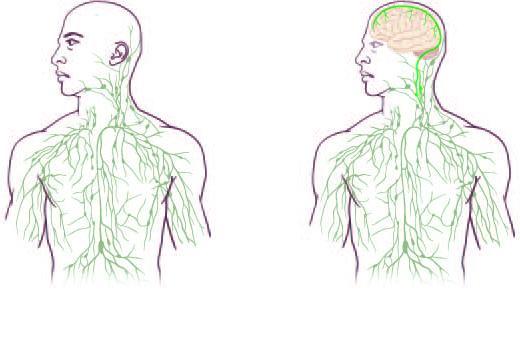A shocking discovery about the human brain made at the University of Virginia School of Medicine is being hailed as one of 2015’s biggest scientific breakthroughs by numerous year-end lists, including those compiled by Scientific American, Science and the National Institutes of Health.
The discovery revealed that that the brain has a direct connection to the immune system – a connection long thought not to exist.
“Though abnormal immune activity had been associated with psychiatric conditions in the past, scientists believed the brain’s immune system to be separate from the body’s,” the editors of Scientific American noted in their listing of the Top 10 Science Stories of 2015. “This new finding suggests that malfunction in these vessels could contribute to a variety of neurological diseases with an immune component including Alzheimer’s and autism.”
Other accolades for UVA’s discovery include:
- The National Institutes of Health featured the finding in its Noteworthy Advances in Basic Research, recognizing “the research accomplishments made by NIH-supported scientists in 2015.”
- NIH Director Francis Collins featured the work as part of “Happy New Year … and a Look Back at a Memorable 2015,” a blog post reviewing NIH-funded work that was honored by Science, one of the world’s most prestigious scientific journals, in its list of finalists for Breakthrough of the Year.
- The Huffington Post named the discovery one of Eight Fascinating Things We Learned About the Mind in 2015.
Read more about the discovery, made by Jonathan Kipnis, Antoine Louveau and their colleagues. Kipnis is a professor in the Department of Neuroscience and director of UVA’s Center for Brain Immunology and Glia. Louveau is a research scientist in the Department of Neuroscience.
Volkan Honored for Psychoanalytic Contributions
The Seattle-based Sigourney Award Trust has given its Sigourney Award to Dr. Vamik D. Volkan, professor emeritus of psychiatry, for his work applying psychoanalytic thinking to conflicts between countries and cultures, as well as his efforts in advancing understanding of severe personality disorders.
The award recognizes individuals or organizations making significant advances in clinical psychoanalysis, psychoanalytic research and applied psychoanalysis. It is named for Mary S. Sigourney, a psychotherapist who sought to encourage new activity in the field. During her lifetime, she funded several academic research programs in psychoanalysis as well as related fields of anthropology and sociology.
A Turkish Cypriot born in Cyprus, Volkan received his medical education at the University of Ankara School of Medicine in Turkey. He came to the United States in 1957 and joined the UVA faculty in 1963. He became a professor of psychiatry in 1971 and retired in 2002.
At UVA, Volkan was the medical director of the University’s Blue Ridge Hospital for 18 years and later established the Center for the Study of Mind and Human Interaction at the School of Medicine, applying theoretical and field-proven knowledge to issues such as ethnic tension, racism, large-group identity, terrorism, societal trauma, mourning, transgenerational transmissions, leader-follower relationships and other aspects of national and international conflict.
Volkan is currently president of the International Dialogue Initiative, a nonprofit organization that brings together unofficial representatives from various parts of the world, such as Germany, Iran, Israel, Russia, Turkey, United Kingdom, the U.S. and the West Bank to examine world affairs from a psychopolitical angle.
Media Contact
Article Information
January 11, 2016
/content/accolades-uva-brain-discovery-earning-international-acclaim

